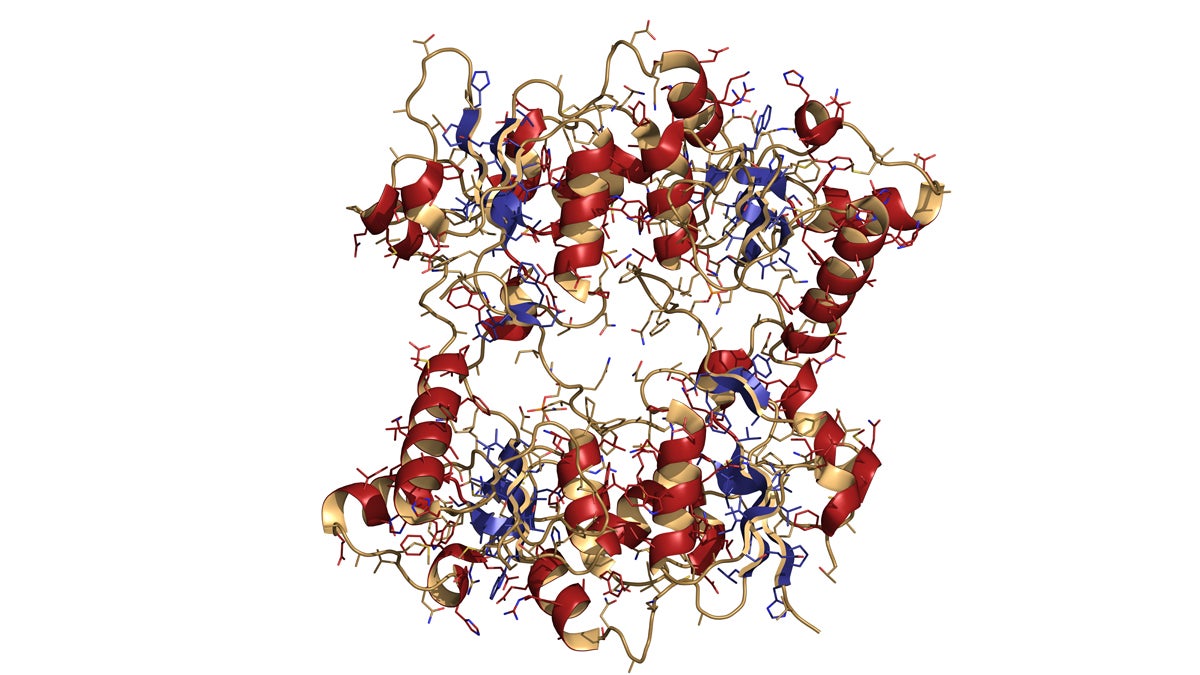Breast vs. ovarian cancer risks vary for women with different gene mutations, Penn study finds
Listen Photo via ShutterStock) " title="shutterstock_164970341" width="1" height="1" fetchpriority="high" />
Photo via ShutterStock) " title="shutterstock_164970341" width="1" height="1" fetchpriority="high" />
BRCA1 (BReast CAncer type 1 susceptibility, BRCT domain) DNA repair enzyme. Certain mutations in the BRCA1 gene are associated with increased breast cancer risk. (<a href="http://www.shutterstock.com/s/breast,ovarian,cancer/search.html?page=2&thumb_size=mosaic&inline=164970317">Photo</a> via ShutterStock)
Not all BRCA mutations are the same. According to a new study from the University of Pennsylvania, the type and location of mutations in the genes helps determine whether women will develop breast or ovarian cancer.
Women who inherit mutations in the infamous BRCA1 and BRCA2 genes are known to be at much higher risk of both cancers, but until now scientists had not evaluated whether certain mutations altered the typical odds.
“Previously, we’ve looked at all mutations together,” said Katherine Nathanson, a cancer geneticist at Penn, and one of the authors of the study, which was published Tuesday in the Journal of the American Medical Association.
For any woman with a mutation in BRCA1, for example, the lifetime risk for breast cancer is roughly 59 percent, whereas ovarian cancer risk is 34 percent.
Using data collected from more than 31,000 women across the globe with BRCA mutations, the Penn team found that those estimates were not always so predictive.
Most mutations in the middle of both genes led to relatively more cases of ovarian cancer. If the DNA errors fell on the ends of the genes, breast cancer was more likely. For instance, two mutations frequently found in Ashkenazi Jewish populations — each on the ends of BRCA1– raised the lifetime risk of breast cancer to 69 percent, but lowered the risk of ovarian cancer to 26 percent.
“It doesn’t mean you won’t get breast cancer or you won’t get ovarian cancer,” said Nathanson. “There’s just some relative differences depending on where the mutation is.”
She is quick to point out that while intriguing, the findings should not yet spur patients to alter treatment plans. Many, including actress Angelina Jolie, opt for multiple preventive surgeries to avoid tumors developing in both organs.
“This absolutely does not change any recommendations about prophylactic surgery,” said Nathanson.
But the hope is to incorporate the results within five years to offer more personalized cancer care.
WHYY is your source for fact-based, in-depth journalism and information. As a nonprofit organization, we rely on financial support from readers like you. Please give today.

